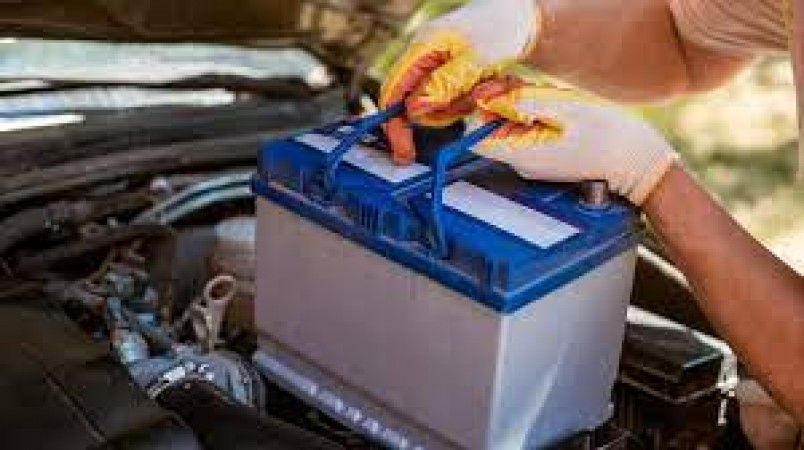
Driving a car is not just about hitting the road; it also involves taking care of various components to ensure a smooth and trouble-free ride. Among these components, the car battery plays a pivotal role. Without a healthy battery, your vehicle won't start, and you might find yourself stranded in the most inconvenient places. Fortunately, there are some straightforward yet effective steps you can take to prolong the life of your car battery. Let's dive into these easy tips that will help you maintain a robust and long-lasting battery.
Heat Is the Enemy Hot temperatures can be tough on your car battery. When the temperature rises, the chemicals inside the battery can evaporate, causing the battery to lose its charge more quickly. Whenever possible, park your car in a shaded area or garage to shield it from the scorching sun. Not only will this help your battery last longer, but it will also make your driving experience more comfortable.
Keep It Active Car batteries recharge as you drive. If you frequently leave your car unused for extended periods, the battery's charge level can deplete, leading to sulfation—a condition that can significantly reduce the battery's lifespan. Make it a habit to take your car for a drive regularly, even if it's just a short trip around the block. This practice will keep the battery charged and ready to go.
Go the Distance While driving your car regularly is essential, try to avoid exclusively taking short trips. Short rides might not give your battery enough time to fully charge, which can lead to it becoming increasingly weaker over time. Whenever possible, combine errands or plan longer routes to ensure your car gets a chance to recharge properly.
Stay Connected Periodically, take a moment to inspect your battery's connections. Corroded or loose connections can hinder the battery's ability to charge and discharge efficiently. If you notice any corrosion, gently clean it off using a mixture of baking soda and water. Also, ensure that the connections are tight to prevent any disruptions in power flow.
Unplug and Relax Leaving your car's electronics on, such as the lights or the radio, when the engine is off can drain the battery unnecessarily. Make it a habit to turn off all electronics before turning off the engine. This simple step can help preserve your battery's charge and extend its lifespan.
Insulate for Success Extreme temperatures can take a toll on your car battery. Consider using a battery insulator or thermal blanket, especially if you live in an area with harsh winters or scorching summers. These insulators help regulate the temperature around the battery, preventing excessive heat or cold from affecting its performance.
Professional Care Schedule regular maintenance appointments with a qualified mechanic. During these check-ups, they can inspect your battery's health and address any issues before they escalate. Professional maintenance can help you catch potential battery problems early on and keep your battery running smoothly.
Power Down Using electronics like air conditioning or power accessories when the engine is off can put strain on the battery. These devices draw power directly from the battery, which can lead to a quicker discharge. If you need to use electronics while the engine is off, try to limit their usage to avoid putting unnecessary stress on the battery.
Shine Bright A clean battery is a happy battery. Regularly inspect the battery for dirt, grease, and corrosion. Gently clean the surface with a battery cleaning solution and a brush. This not only helps maintain the battery's performance but also prevents corrosion from spreading to other parts of the car.
Store Smartly If you plan to leave your car unused for an extended period, consider disconnecting the battery. This prevents any slow power drains that might occur due to electronic systems that continue to draw power even when the car is off. Just be sure to follow proper safety procedures and consult your car's manual before disconnecting the battery.
Mindful Consumption While modern cars come with a plethora of electronic features, using them excessively can strain the battery. Be mindful of how much you rely on power-hungry features like heated seats, infotainment systems, and charging ports. Striking a balance between convenience and battery preservation is crucial.
Measure and Monitor Regularly test your battery's voltage using a voltmeter. This helps you keep track of its health and detect any potential issues early on. If you notice a significant drop in voltage, it might be time to consider replacing the battery before it fails completely.
Fit Matters When replacing your car battery, ensure that you choose one with the appropriate specifications for your vehicle. A battery that's too small or too weak for your car's needs can lead to premature failure. Consult your car's manual or a professional mechanic to determine the right battery for your vehicle.
Weather Woes Extreme temperatures, whether cold or hot, can put additional strain on your car battery. In cold weather, the battery has to work harder to start the engine, while hot weather can cause the battery's electrolyte to evaporate. In such conditions, following the previous tips becomes even more critical.
Embrace Renewal No battery lasts forever. Pay attention to signs of a failing battery, such as slow engine cranking, dim headlights, or warning lights on your dashboard. When you notice these signs, don't procrastinate—replace the battery promptly to avoid unexpected breakdowns. Taking care of your car battery doesn't require a degree in automotive engineering. By following these simple yet effective tips, you can extend the life of your car battery, save money, and reduce the chances of getting stuck with a dead battery when you least expect it. Remember, a little preventive care goes a long way in ensuring your vehicle's reliability and longevity.
Unlock Savings of up to ₹31,000 on Honda Amaze This August
Luxury Redefined: Rolls-Royce Introduces the Amethyst Droptail Commission
Tesla Cybertruck's Cabin Illuminated: A Glimpse into the Future